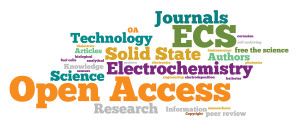The 231st ECS Meeting took place last week in New Orleans, LA, where Way Kuo, president at City University of Hong Kong, delivered the ECS Lecture, “A Risk Look at Energy Development.” In his talk, Kuo highlighted the many risks we face every day, ranging from air pollution to auto accidents to cyber-attacks. While those risks exist, Kuo pointed out that the biggest risk today is energy and energy safety, including issues of energy consumption, global warming, and sustainability.
“Renewable energies have witnessed rapid development in recent years worldwide in a concerted effort to curb greenhouse gas emissions,” Kuo wrote in his meeting abstract. “And yet, wind power production still constitutes only 4% in the global power mix and solar PV represents 1%, while fossil fuels remain the world’s dominant energy source, accounting for around 65%. Coal, the main culprit for greenhouse gas emissions, represents 43% of fossil fuels, even though the coal-fired generation share of total electricity production is declining, and still causes 7 million death a year due to air pollution, according to the United Nations. Any discussion of energies today cannot neglect nuclear energy as a key base-load power, despite concerns about possible radiation leaks and nuclear waste.”
Recently, Kuo wrote an article in the South China Morning Post, where he discussed the importance of properly capturing and analyzing scientific data, which will improve our ability to predict and respond to disasters. The article, which was adapted from Kuo’s ECS Lecture, analyzes security issues related to everything from terrorism to foodborne illness.


